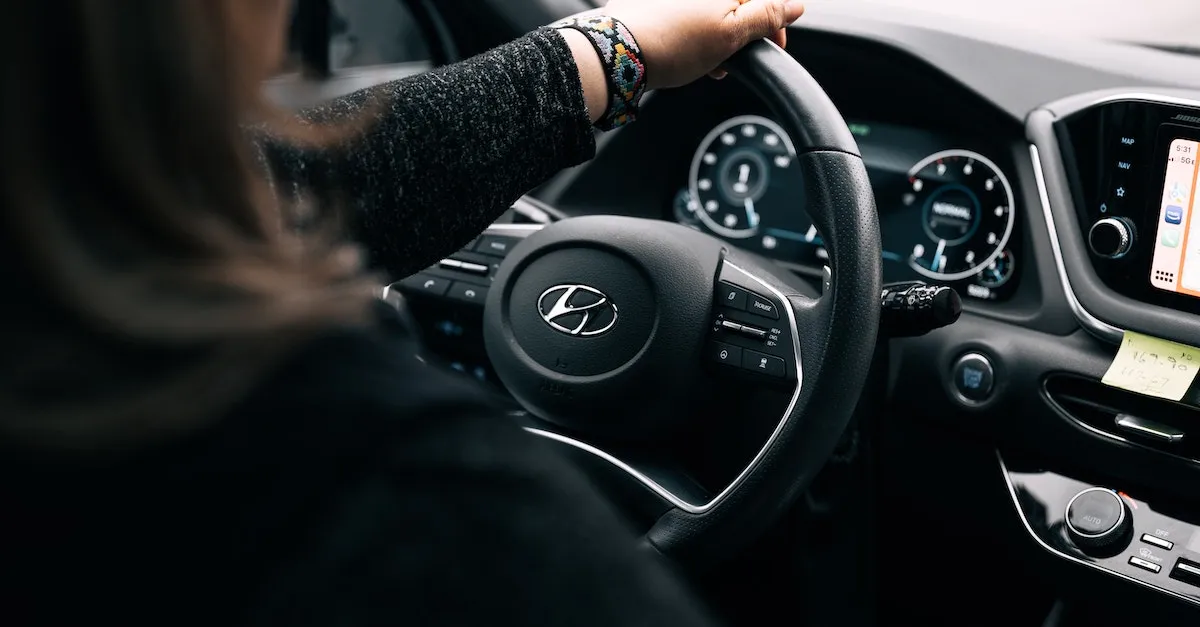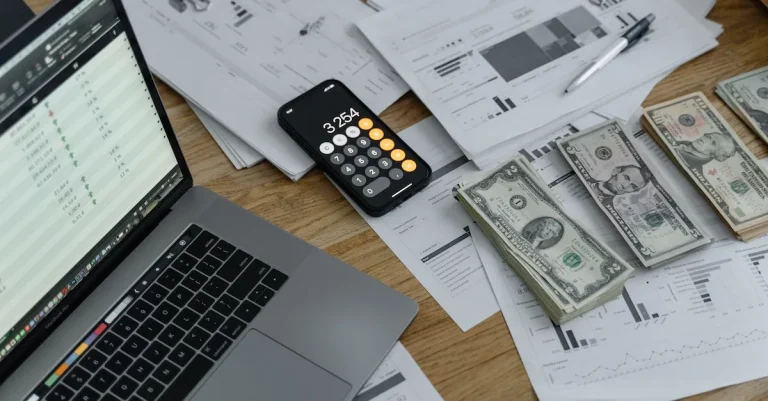Do All Accidents Show Up On Your California Driving Record? What You Need To Know
If you’ve been in a car accident in California, you may wonder whether it will end up on your driving record. Understanding what kinds of crashes are reported can help you keep your record clean.
If you’re short on time, here’s a quick answer to your question: Not all accidents appear on your California driving record. Minor fender benders generally won’t show up unless there are injuries, drunk driving, or hit-and-run involved.
This in-depth guide explains what accidents go on your California driving record, which ones don’t, how long they stay on your record, and how to check your own record.
Accidents That Are Reported
Injury Accidents
When it comes to accidents that are reported on your California driving record, injury accidents are definitely on the list. These are accidents where someone involved in the accident sustains an injury, regardless of how severe it may be.
It’s important to note that even if you were not at fault for the accident, it can still show up on your driving record. This is because your driving record serves as a comprehensive history of your driving behavior, including any accidents you were involved in.
Hit-and-Run Crashes
Another type of accident that is reported on your driving record in California is hit-and-run crashes. These are accidents where one party involved flees the scene without stopping to exchange information or report the accident to the authorities.
Hit-and-run crashes are taken very seriously, as they are considered a crime. If you were the victim of a hit-and-run crash, it’s important to report it to the police and provide as much information as possible to help identify the responsible party.
DUI Accidents
Driving under the influence (DUI) accidents are also reported on your driving record in California. If you are involved in an accident while under the influence of alcohol or drugs, it can have serious consequences on your driving record and overall driving privileges.
A DUI accident can result in a suspension or revocation of your driver’s license, mandatory completion of an alcohol or drug education program, and potentially even criminal charges.
Accidents with Over $1,000 in Damage
Accidents that result in property damage exceeding $1,000 are also reported on your driving record in California. This includes damage to vehicles, buildings, or any other property involved in the accident.
Even if the accident was a minor fender bender, if the estimated damage exceeds $1,000, it will be recorded on your driving record. It’s important to always exchange insurance information and report any accidents to your insurance company, regardless of the severity of the damage.
Remember, your driving record is an important document that is used by insurance companies, employers, and law enforcement agencies to assess your driving history and behavior. It’s crucial to drive responsibly, follow traffic laws, and report any accidents you are involved in, even if you believe they may not show up on your driving record.
For more information on California driving records and accident reporting, you can visit the official website of the California Department of Motor Vehicles.
Accidents That Aren’t Reported
Minor fender benders
Not all accidents are reported to your California driving record. Minor fender benders, for example, may not show up on your record if the damage is minimal and both parties involved agree not to involve their insurance companies.
In these cases, it is common for the drivers to exchange insurance information and handle the repairs themselves. This informal agreement allows drivers to avoid potential increases in insurance premiums.
Parking lot accidents
Accidents that occur in parking lots are another type of accident that may not be reported to your driving record. Since parking lot accidents typically involve low speeds and minor damages, drivers often decide to handle the situation privately rather than involve their insurance companies.
However, it is important to note that if the accident involves significant damage or injury, it is recommended to report it to the authorities and your insurance provider.
Single-vehicle accidents
In some cases, single-vehicle accidents may not show up on your driving record. These accidents occur when a driver loses control of their vehicle and damages only their own property. Since no other parties are involved, there may be no requirement to report the accident to the authorities or insurance companies.
However, it is always advisable to consult with your insurance provider to understand their specific reporting requirements.
It is important to remember that while these types of accidents may not show up on your driving record, they can still impact your insurance rates if you choose to report them to your insurance company.
Insurance companies can consider any claims or accidents, whether reported or not, when determining your premiums. Additionally, if you are involved in multiple accidents, even if they are not reported, it can raise red flags with your insurance provider.
For more information on reporting accidents and understanding their impact on your driving record and insurance rates, it is recommended to visit the official website of the California Department of Motor Vehicles.
They provide detailed guidelines and resources to help drivers navigate the reporting process and understand the consequences of different types of accidents.
How Long Accidents Stay on Your Record
When it comes to your driving record, accidents can have a lasting impact. They not only affect your insurance rates but can also have consequences when it comes to future job opportunities. Understanding how long accidents stay on your record is essential in order to be prepared.
3 years for most accidents
In California, most accidents will stay on your driving record for a period of three years. This includes minor fender benders, collisions, and other similar incidents. After three years, these accidents will typically be removed from your record, and their impact on your insurance rates will diminish.
7 years for major violations
However, for more serious accidents or major violations, the timeframe is longer. Accidents involving significant damage to property or injury to others may stay on your driving record for up to seven years.
These incidents are considered more severe and may have a greater impact on your insurance rates and driving history.
10 years for DUIs
Driving under the influence (DUI) is a serious offense that carries severe consequences. In California, DUI convictions can stay on your driving record for up to ten years. This extended period reflects the gravity of the offense and serves as a reminder of the dangers of impaired driving.
Permanently for fatalities
Accidents resulting in fatalities are the most serious and tragic. In these cases, the accident will remain on your driving record permanently. These incidents are thoroughly investigated and carry significant legal and emotional repercussions.
It is important to note that the length of time accidents stay on your record may vary depending on the state and local regulations. Additionally, certain accidents may require reporting to the Department of Motor Vehicles (DMV) and may have additional consequences.
For more information on California driving records and regulations, you can visit the official DMV website at www.dmv.ca.gov.
Checking Your Own Driving Record
It is important for drivers to regularly check their own driving records to ensure accuracy and stay informed about any accidents or violations that may be listed. By reviewing their driving record, individuals can take steps to correct any errors and prevent potential problems with insurance rates or future employment opportunities.
Here are some key steps to follow when checking your own driving record in California.
Obtain record from DMV
To obtain a copy of your driving record, you can request it from the California Department of Motor Vehicles (DMV) either online, by mail, or in person. The DMV provides a variety of options for accessing your driving record, making it convenient for drivers to obtain this important information.
It is important to note that there may be a fee associated with requesting your driving record, so be sure to check the DMV’s website for the current fee schedule.
Review for errors
Once you have obtained your driving record, take the time to carefully review it for any errors or inaccuracies. Errors on your driving record can negatively impact your insurance rates, and in some cases, may even lead to a suspension of your driver’s license.
Pay close attention to details such as accident dates, violation descriptions, and any other information that may be incorrect or outdated. If you spot any errors, it is crucial to take immediate action to correct them.
Dispute any inaccuracies
If you discover any inaccuracies or errors on your driving record, it is important to take steps to dispute and correct them. The DMV provides a process for disputing information on your driving record, which typically involves submitting a written request along with any supporting documentation.
Be sure to follow the DMV’s guidelines and provide all necessary information to support your dispute. By taking prompt action, you can ensure that your driving record is accurate and up-to-date.
Remember, regularly checking your driving record is an essential part of being a responsible driver. By staying informed about your driving history, you can take action to correct any errors and maintain a clean record.
For more information about checking your driving record in California, visit the California DMV website.
Maintaining a Clean Driving Record
Keeping a clean driving record is essential for every driver in California. Not only does it demonstrate your commitment to road safety, but it also has various benefits, such as lower insurance premiums and avoiding potential legal consequences.
Here are some important tips to help you maintain a clean driving record:
Drive defensively and avoid accidents
One of the most effective ways to maintain a clean driving record is by driving defensively and avoiding accidents. This means being vigilant and aware of your surroundings, obeying traffic laws, and anticipating potential hazards.
Defensive driving techniques, such as maintaining a safe following distance, regularly checking your mirrors, and avoiding distractions, can significantly reduce your risk of being involved in an accident.
Did you know? According to the California Office of Traffic Safety, defensive driving has been shown to reduce the likelihood of accidents by up to 50%.
Take traffic school
If you receive a traffic violation, one option to prevent it from appearing on your driving record is to take traffic school. Traffic school allows you to complete a defensive driving course, which can help dismiss the violation and keep your record clean.
It’s important to note that not all violations are eligible for traffic school, so it’s essential to check with your local Department of Motor Vehicles (DMV) to determine your eligibility.
Want to learn more about traffic school options in California? Visit the official California DMV website at www.dmv.ca.gov.
Limit DMV points
The California DMV operates on a point system, where each traffic violation carries a certain number of points. Accumulating too many points within a specific time period can lead to consequences, such as a license suspension or increased insurance rates.
To maintain a clean driving record, it’s crucial to limit the number of DMV points you accumulate. This can be achieved by practicing safe driving habits, avoiding traffic violations, and promptly addressing any citations you receive.
| Violation | Points |
|---|---|
| Speeding (1-15 mph over the limit) | 1 point |
| Running a red light | 1 point |
| Reckless driving | 2 points |
| Driving under the influence (DUI) | 2 points |
Remember, it’s always better to be safe than sorry! By following these tips and practicing responsible driving habits, you can maintain a clean driving record and enjoy the benefits that come with it.
Conclusion
In California, most minor accidents won’t show up on your driving history. But injury, DUI and hit-and-run crashes will stay on your record for years.
Checking your own record periodically and driving safely can help minimize violations. An attorney can also help remove eligible incidents.








